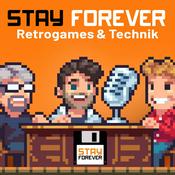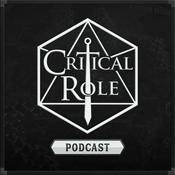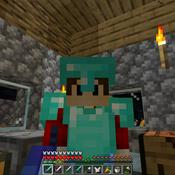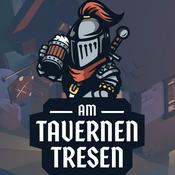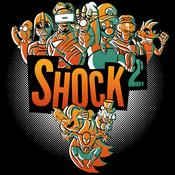139 Episoden
- WIth the seventh year of the Retro Spectives Podcast officially done and dusted, it is once again time for our Mailbag Episode! Every year we take the time to answer questions from our listeners about old games and new, our favourite beverages and the nature of the podcast itself. Thank you so much to everyone who listens - you’re the reason we keep doing this all these years later.
So, as is tradition, grab yourself a mug of hot cocoa and snuggle in to listen to us gasbagging about all kinds of gaming.
We answer and discuss questions like:
What gaming discussion/analysis content titillated you this year?
If you had to execute one video game or fictional character on live tv/stream, who would it be?
If you were suddenly made supreme emperor of Earth and could demand any game either be remade or get a sequel, and it would be made to your exact specifications, what game would that be and what would you change in the sequel/remake?
We answer these questions and many more on the 137th episode of the Retro Spectives Podcast!
—
Intro Music: KieLoBot - Tanzen K
Outro Music: Rockit Maxx - One point to another
—
Pat's link re horse race tests:
www.youtube.com/watch?v=4GesBe0XY-U - Warcraft II is one of the most influential RTS games of all time. It brought the genre to the mainstream with insane sales, and set the standard for UI and tech trees for years to come. Blizzard had cracked the code on what made RTS games tick, and it laid the groundwork for the classics that would come in its wake.
But for all its influence, how much fun is Warcraft II to actually play today? Does it suffer from its far more simplistic mechanics and mirrored factions, or is there something elegant and refined about a more stripped back and focused RTS?
On this episode, we discuss:
Presentation
How well does Warcraft 2 sell its aesthetic and lore? Do its cartoony graphics hold up well compared to RTS’s of today? Are the responses of its units annoying or endearing?
Macro
Are the macro elements of Warcraft II well realised? How does it balance building up your economy versus developing a standing army to take the battle to the enemy? Are there diverse objectives or constraints to liven up the experience of building up your base?
Micro
How fun is it to micro your units in Warcraft II? Do the lack of quality of life features like unit queuing, rally points and limited units per control group make the experience miserable? Are there any units that stand out as affecting the flow of battle?
We answer these questions and many more on the 136th episode of the Retro Spectives Podcast!
—
Intro Music: KieLoBot - Tanzen K
Outro Music: Rockit Maxx - One point to another
Warcraft 2 OST: Glenn Stafford
—
If you’d like more RTS discussion, Pat guested on the Nostalgia Goggles Podcast for Starcraft 1! You can listen to that episode here.
—
Was your experience playing Warcraft 2 back in the day radically different from our own? Were there any strategies or tactics that we missed? What other under the radar modern RTS games should we play? Come let us know what you think on our community discord server!
You can support the show monetarily on our buy me a coffee page! - Yu-Gi-Oh!, along with Magic: The Gathering and Pokemon, is one of the original big 3 trading card games. Starting its life as a Manga, then a tv series, the story about the card game eventually became a card game. Since then Yugioh has morphed through many different iterations and is still going strong today, even if its present self doesn’t have much to do with its humble beginnings.
Nestled right in between the birth of the card game and the current format is Yu-Gi-Oh! 5D’s World Championship 2011: Over the Nexus. It's an interesting middle child of the franchise for many reasons - it builds off previous games in the franchise while still being primarily a single player game. Its format at full power makes the decks of yesteryear look like a joke, but would get trounced by anything played today. It boasts a truly absurd card pool of ~4300 cards, and they’re shockingly mostly coded correctly.
So, is it worth going back to a different time and place to play some single player Yu-Gi-Oh? Or is this weird slice of history more of a curio to look back on and never experience?
On this episode, we discuss:
Identity
What exactly is the identity of Yu-Gi-Oh! compared to other trading card games like Magic or Hearthstone? What does it excel at, and where is it at its weakest? How does the game actually play out, with its extra deck and high consistency tutors?
Deckbuilding
How viable is it for the player to build their own deck from scratch? How well does the UI facilitate both experimenting with ideas, and finding cards that synergise together? Do enemy decks give you inspiration and options, or are they generic and copy pasted?
Progression Systems
How do you unlock the cards required to build your decks? Are unlocks intelligently seeded throughout your playthrough to give you a gradual increase in power? Is it satisfying to gradually build a deck up from its basic roots, or is it too difficult to acquire key cards?
We answer these questions and many more on the 135th episode of the Retro Spectives Podcast!
--
Intro Music: KieLoBot - Tanzen K
Outro Music: Rockit Maxx - One point to another
Yugioh 2001 OST: Miki Murai, Kazuma Jinnouchi, Yasuhita Iso
--
Is there a better Yugioh video game out there that we somehow missed on? What other single player card games, retro or modern, are worth our time? Are you a fan of card games on motorcycles? Come let us know what you think on our Community Discord Server!
You can support the show monetarily on our Buy me a Coffee Page! - Released towards the end of the Nintendo 64’s lifespan in 2000, Perfect Dark was the culmination of several years of FPS development on consoles. After Rare released Goldeneye in 1997, they wanted to take another spin at the formula, but this time with an original IP. Enter Perfect Dark, featuring many of the cornerstones of FPS design that defined Goldeneye, but far more refined.
The game featured more varied level design, a ridiculous selection of weapons, improved enemy AI (with a wider range of reactions to damage) and more advanced scripting. No longer tied down to realism, Rare was free to throw in sci-fi weapons and surreal alien environments. And this extended to the story as well, which went to some absolutely wild places.
But for all its improvements upon Goldeneye, is there a fatal flaw at the heart of N64 FPS design? Or is it just an awkward middle child, playing in the shadows of both the PC behemoths and the specter of Halo?
On this episode, we discuss:
Level Design
Perfect Dark retains the mission structure of Goldeneye, with multiple objectives set in short and sharp missions. Do the improved and better explained mission objectives bring a clarity to the mission design that Goldeneye lacked, or is it still confusing and incoherent?
Guns
Perfect Dark has an absolute plethora of weapons, from guided rocket launchers to wallhack alien sniper rifles. Does its wide variety of weapons provide a deep and replayable moment to moment gameplay experience, or is it undone by its identity as a hitscan FPS?
Enemies
Most of the enemies you face in Perfect Dark are regular humans, who die in a single headshot. What does the game do to add challenge and variety to the FPS hitscanning experience of clicking on heads, and is it way too easy with a mouse and keyboard?
We answer these questions and many more on the 134th episode of the Retro Spectives Podcast!
—
Intro Music: KieLoBot - Tanzen K
Outro Music: Rockit Maxx - One point to another
Perfect Dark OST: Grant Kirkhope
—
What was your favourite level in Perfect Dark? Are there any indie FPS games coming out (or already out) that are evocative of its design? Did you find there was anything at all remotely redeeming about the story? Come let us know what you think on our community discord server!
You can support the show monetarily on our Buy me a Coffee Page! - The Legend of Zelda: Ocarina of Time is without a doubt one of the most influential video games ever made. Unlike some titles that struggled with the transition to 3D, Zelda absolutely smashed it, setting the blueprint for what successful open world level design looked like for many years to come.
It introduced (or popularised) many mechanics, including lock-on, c-button item selection and even an active day/night cycle. It somehow took the 2D dungeon design of the earlier Zeldas and transformed them into something that modern games struggle to emulate to this day. And its legacy is so strong that even people who have never played the games are familiar with “Hey, Listen!”.
But for all its fame and fortune, for all of its innovation and brilliance - it is 27 years later. What was once revolutionary is now standard or even passe. Ocarina of Time not only has to compete against all the games that have copied and built on its foundations, but also itself, with many more 3D zelda games launched in its wake. Has Ocarina of Time truly stood the test of time, or should it go back to kid mode and stay there?
On this episode, we discuss:
Dungeons
Ocarina of Time’s major gameplay draw, its deepest mechanics, are all found in its dungeons. It's a mix of puzzles, combat and exploration, gated by keys and items. Are the dungeons in OOT well designed with good pacing, or are they frustrating slogs with endless backtracking?
Items
The longer you play Ocarina of Time, the more tools you have at your disposal. Nuts, hookshots, hover boots, ocarina songs, spells - the list goes on and on. Does the game manage to balance this huge array of options, or does each one end up feeling too shallow and specific?
Combat
One of the pillars of Ocarina of Time, and all Zelda games, are their combat systems. OOT introduced the concept of a lock on, with some very aggressive mini boss enemies that feel like prototype Dark Souls skeletons. Is the combat here fun and engaging, or does the camera control and AI hold it back?
We answer these questions and many more on the 133rd episode of the Retro Spectives Podcast!
—
Intro Music: KieLoBot - Tanzen K
Outro Music: Rockit Maxx - One point to another
Zelda OOT OST: Koji Kondo
—
We played Zelda: Ocarina of Time using Ship of Harkinian, a custom modded port of the game that runs like a dream on modern PCs. Definitely check it out!
—
Is our take on the Water Temple spot on, or highly controversial? DId you ever get stuck while wandering the greater open world, or was that just a feature so you could catch more fish? Which Zelda game should we play next? Come let us know what you think on our community discord server!
You can support the show monetarily on our Buy me a Coffee page
Weitere Freizeit Podcasts
Trending Freizeit Podcasts
Über Retro Spectives
Are classic games deserving of their praise? Or have the unwashed masses been blinded by nostalgia? On the Retro Spectives Podcast, we tell you why you're wrong about the games you love.
Podcast-WebsiteHöre Retro Spectives, ASMR Miss Mi und viele andere Podcasts aus aller Welt mit der radio.at-App
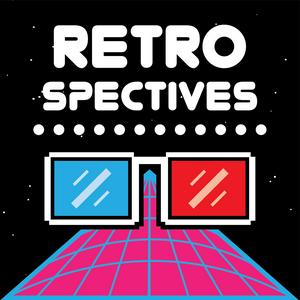
Hol dir die kostenlose radio.at App
- Sender und Podcasts favorisieren
- Streamen via Wifi oder Bluetooth
- Unterstützt Carplay & Android Auto
- viele weitere App Funktionen
Hol dir die kostenlose radio.at App
- Sender und Podcasts favorisieren
- Streamen via Wifi oder Bluetooth
- Unterstützt Carplay & Android Auto
- viele weitere App Funktionen


Retro Spectives
Code scannen,
App laden,
loshören.
App laden,
loshören.




